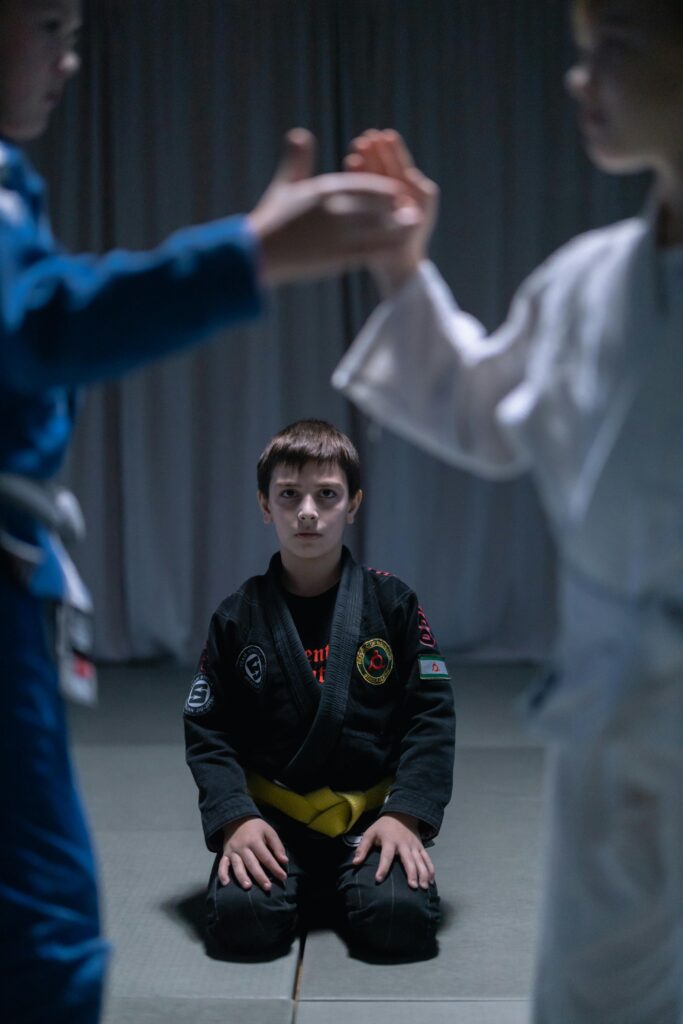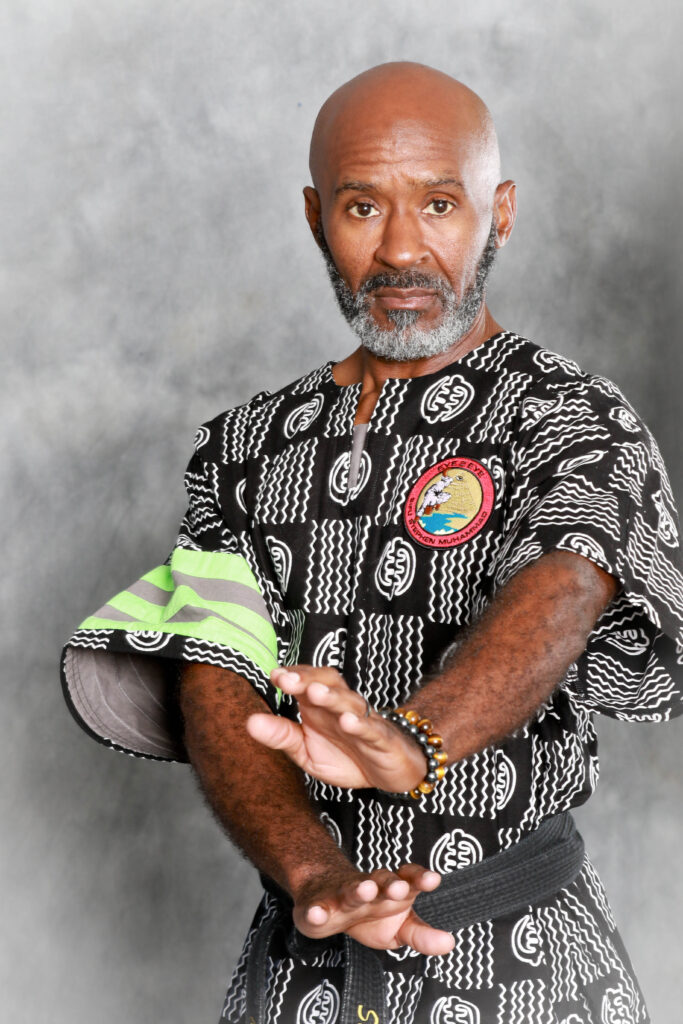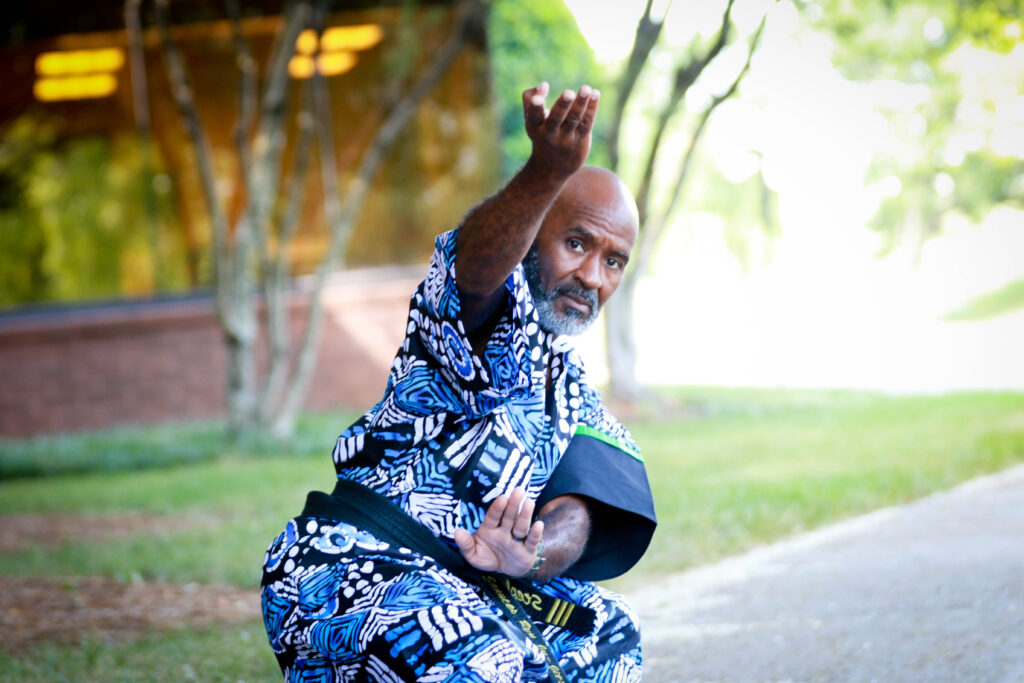Wing Chun martial arts is something that’s easy to pick up but takes you on a lifelong journey of self-mastery and confidence.
Unlike other martial arts, Wing Chun was developed specifically to be practical, effective, and straightforward, designed to give you the tools to protect yourself even if you’re smaller or not physically strong.
If you’re like me, you might be drawn to Wing Chun for more than just self-defense. You may want a new way to stay fit, build resilience, and boost your confidence.
I’m here to walk you through everything about Wing Chun martial arts, from its core principles and techniques to its real-world benefits and how you can make it part of your daily life. Let’s dive in!
Understanding the Essence of Wing Chun
There’s something uniquely powerful about Wing Chun’s simplicity. Developed centuries ago by a Buddhist nun named Ng Mui, Wing Chun was created to give practitioners a way to defend themselves without relying on brute strength.
It’s all about direct, efficient movements that can neutralize a threat as quickly as possible.
Core Principles of Wing Chun Martial Arts
At the heart of Wing Chun are three key principles that shape everything you do:
Centerline Theory
Wing Chun is all about protecting and attacking along your body’s “centerline.” This imaginary line runs down the middle of your body, where vital areas lie. By staying focused on protecting this line, you make yourself a harder target to hit.
Simultaneous Attack and Defense
One of the things I love about Wing Chun is how it combines attack and defense into a single movement. Instead of blocking first and then hitting, you’re trained to respond to an attack by defending and counterattacking at the same time.
Efficiency in Motion
Wing Chun teaches you to make every movement as direct and quick as possible, removing anything flashy or unnecessary. This makes it one of the most effective martial arts for self-defense.
Key Techniques and Movements in Wing Chun
The techniques in Wing Chun are simple yet powerful. They’re designed to work in real-world scenarios where you might not have time or space for complicated movements. Here’s a look at some of the core elements.
Basic Stances and Structure
Stance in Wing Chun is crucial for balance and control. The basic stance, known as the Yee Jee Kim Yeung Ma, might look simple, but it’s the foundation for everything.
By standing with slightly bent knees, feet shoulder-width apart, and staying relaxed, you build a strong base to defend yourself. This stance grounds you, making it harder for an attacker to knock you off balance.
Hand Techniques for Defense and Attack
Wing Chun uses a range of effective hand techniques, like the straight punch, palm strike, and deflective movements such as Pak Sau (slap hand) and Tan Sau (palm-up block).
The straight punch is particularly powerful because it lets you strike quickly and directly. I’ve found that practicing these moves strengthens not only your reflexes but also your confidence in being able to defend yourself effectively.
Footwork and Mobility in Combat
In Wing Chun, footwork is all about efficiency. Instead of jumping around or taking big steps, you learn small, precise movements to stay agile and avoid being cornered.
Wing Chun’s unique footwork techniques, like shifting and stepping, help you adjust quickly to an attack while staying balanced. This keeps you ready to respond without wasting any energy.
Benefits of Practicing Wing Chun
The benefits of Wing Chun go far beyond self-defense. It’s a holistic system that improves your physical and mental well-being.
Enhancing Self-Defense Skills
At its core, Wing Chun is one of the best martial arts for learning real-world self-defense. The techniques you learn are straightforward and effective, allowing you to protect yourself against larger opponents.
Wing Chun teaches you to stay calm under pressure, anticipate attacks, and respond quickly. It’s also designed to be accessible, so whether you’re a beginner or an experienced martial artist, you can apply its techniques from day one.
Building Confidence and Mental Resilience
One of the most rewarding aspects of Wing Chun is the confidence it brings. When you practice, you’re not just learning physical moves; you’re also building mental strength.
The discipline and focus Wing Chun requires translate into everyday life. Whether you’re handling a stressful work situation or a personal challenge, the resilience you gain from Wing Chun helps you stay grounded and calm.
Physical Fitness and Health Benefits
Wing Chun is also fantastic for fitness. The movements improve your flexibility, coordination, and balance. Practicing Wing Chun regularly can lead to stronger muscles, better posture, and improved cardiovascular health.
What’s great is that Wing Chun doesn’t need fancy equipment or a gym—many of its exercises can be done at home. This makes it ideal for anyone looking to stay fit while learning practical self-defense.
Practical Applications of Wing Chun in Modern-Day Scenarios
One of the biggest draws of Wing Chun is its practicality. The techniques are designed for real-life situations, so you’re not just learning moves—you’re gaining tools for personal safety.
Situational Awareness and De-escalation
Wing Chun teaches you to stay aware of your surroundings and notice potential threats. This kind of situational awareness is invaluable, especially in unpredictable environments.
Knowing how to assess a situation and respond calmly can often prevent conflicts before they even begin.
This aspect of Wing Chun makes it one of the best martial arts for real-world self-defense, as it’s not always about fighting—it’s about keeping yourself safe.
Using Wing Chun Techniques for Personal Safety
In Wing Chun, you learn to use techniques like Pak Sau (slap hand) and chain punching to fend off attackers.
These techniques are effective in close-range scenarios, where quick, controlled movements are key. The goal is to neutralize the threat swiftly and maintain control of the situation, without relying on brute force.
Integrating Wing Chun into Your Lifestyle
One of the things I appreciate most about Wing Chun is that it’s not limited to the dojo. There are plenty of ways to bring its principles into your daily life, helping you build habits that benefit both body and mind.
Practicing Wing Chun Beyond the Dojo
Wing Chun principles, like balance and awareness, can be applied anywhere. Whether you’re at home, in the office, or out running errands, you can practice staying relaxed, observing your surroundings, and moving mindfully.
This helps you develop a more intuitive sense of balance and calm, making you more prepared for unexpected situations.
Building a Consistent Wing Chun Routine
To get the most out of Wing Chun, it’s important to make it a regular part of your routine. Even a few minutes a day can make a difference.
Practice a few rounds of chain punching or work on your stance in front of a mirror. This doesn’t just build muscle memory—it reinforces the mindset that Wing Chun teaches, keeping you sharp and ready.
Applying Wing Chun for Mind-Body Connection
Practicing Wing Chun goes beyond physical moves; it builds a strong mind-body connection. When you practice, you’re teaching your body to respond instinctively while training your mind to stay focused.
This connection is a powerful tool, helping you handle stress, stay focused, and feel more balanced in all aspects of life.
Step into a New You with Wing Chun at Eye2Eye Combat
The journey of Wing Chun martial arts brings more than just practical self-defense skills; it builds confidence, resilience, and a deep sense of control that extends far beyond physical training.
With its accessible techniques and unique emphasis on mind-body connection, Wing Chun offers something valuable for everyone.
At Eye2Eye Combat, we’re dedicated to helping you explore the full potential of Wing Chun in a way that’s personalized, effective, and immediately practical.
Whether you’re new to martial arts or looking to deepen your practice, Eye2Eye Combat is where transformation begins. Stop by, meet the team, and let’s start building your strength, confidence, and peace of mind together.
FAQs
1. Is Wing Chun effective in a real fight?
Absolutely, Wing Chun was actually designed for real-world effectiveness. It’s all about quick, practical movements and protecting yourself with efficient techniques. Instead of flashy moves, Wing Chun focuses on neutralizing threats quickly by targeting an opponent’s weak points. So, whether you’re dealing with someone bigger or stronger, Wing Chun techniques equip you with practical skills that work under pressure.
2. Is Wing Chun hard to learn?
Not at all! One of the best things about Wing Chun is that it’s accessible to anyone, regardless of size, strength, or previous experience. The movements are natural and easy to pick up, and it’s all about using your body efficiently. With regular practice, you’ll notice improvement pretty quickly, and the techniques become second nature, which makes Wing Chun one of the more beginner-friendly martial arts.
3. What is Wing Chun’s weakness?
Wing Chun is fantastic in close-range combat, but it’s not as strong with long-range attacks or when facing multiple opponents. Its techniques focus on efficiency and quick responses up close, so if your opponent keeps a lot of distance, you might need to adjust your strategy. Still, Wing Chun teaches solid fundamentals that you can adapt if you’re facing different styles or situations.
4. Can you learn Wing Chun by yourself?
You can get started with some basics, like stances and certain movements, on your own, but Wing Chun really shines when you practice with a partner. Self-defense techniques in Wing Chun are best learned by feeling how the movements work against resistance, which is tricky to do solo. But starting with solo drills can help you build foundational skills until you’re ready for a partner or class.
5. How many years does it take to master Wing Chun?
The time it takes depends on your practice and dedication. Many people start feeling confident with basic techniques in a few months, but Wing Chun has many layers, so mastery could take years. Think of it as a journey—each level builds on the last, and you’re constantly learning. With consistent practice, though, you’ll find it rewarding and deeply effective pretty quickly.
6. Is Wing Chun good for self-defense?
Yes, Wing Chun is excellent for self-defense. It’s all about quick reactions, efficiency, and using your opponent’s energy against them. Wing Chun teaches you to stay calm, protect your vital areas, and respond effectively, which is perfect for real-world scenarios. The techniques are practical, and they work well even if your opponent is larger or stronger, making Wing Chun very reliable in self-defense.
7. Can kids learn Wing Chun?
Definitely, Wing Chun is a great martial art for kids. It’s not only about self-defense but also builds confidence, discipline, and focus. Kids learn to respect their own boundaries and understand personal space. The movements are straightforward and don’t require a lot of strength, so children can pick up the basics quickly, which boosts their confidence and gives them useful skills they can carry for life.





